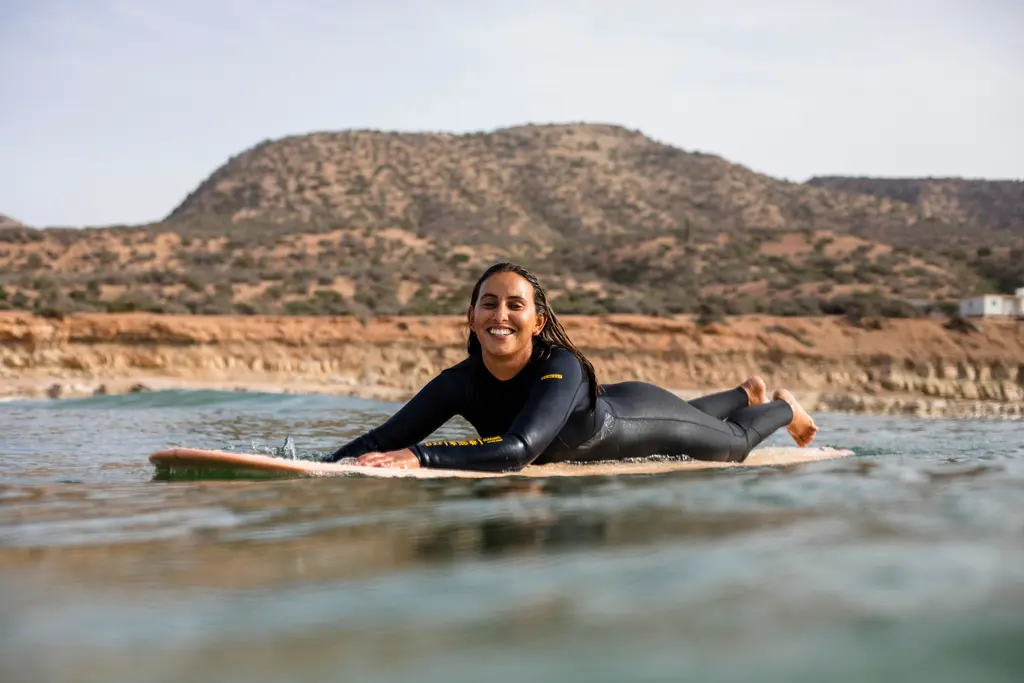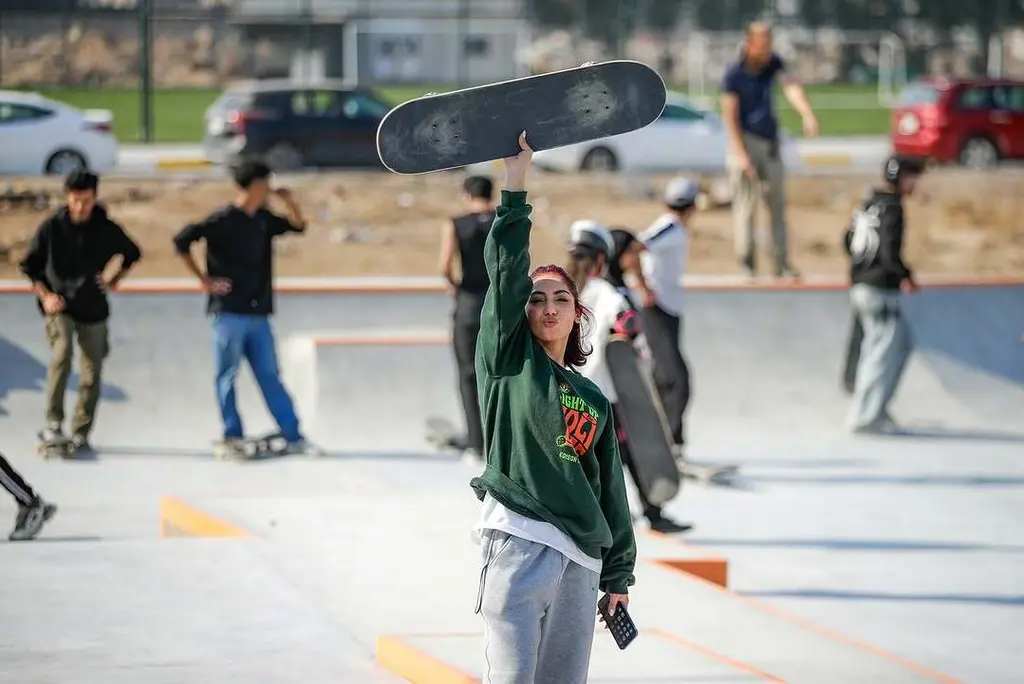How will Olympic selection affect surfing and skateboarding?
- Text by Alex King

The father of modern surfing, Duke Kahanamoku, first declared his wish to see surfing in the Olympics at the 1912 Games in Stockholm. Over a century later, Duke’s dream has finally come true, as it was announced that surfing and its concrete offspring skateboarding will both feature in the 2020 Tokyo Olympics.
While this is a big win for the governing bodies, the International Surfing Association (ISA) and the International Skateboarding Federation (ISF), who have been pushing hardest for sports’ inclusion in the Olympics, it has divided surfers and skaters.
Will the expected influx of attention and money really nurture the cultures we love? What the contrasting reactions boil down to is a long-running battle over the soul of both sports – with many who cherish their counterculture roots disputing the competitive aspect and the idea of labelling them “sports” in the first place.
To get a sense of the strength of feeling on both sides of the aisle and look at both the positives and negatives of surfing and skating’s inclusion in the Olympics, we reached out to Will Harmon, editor of Free Skateboard Magazine, Sancho Rodriguez, founder of San Sebastián Surfilm Festibal, and Danni Gallacher, founder of Girls Skate UK.
“My personal opinion is that we don’t need the Olympics as much as they need us,” Danni explains. “Skateboarding is so much more than a set of rules and a points system, and although there are tonnes of competitions all over the world, competitiveness is not at the heart of skateboarding for most.”
Sancho echoes that for surfing culture: what motivates most people to hit the waves is not televised international competitions. His crew of rowdy Basque surfers are at the opposite end of the spectrum to competitive surfing, and they will carry on doing what they do, regardless.
“Of course it concerns me that surfing will become dominated by big corporate interests and that is likely to subvert the ideals of freedom and environmental stewardship that surfing is built on,” he explains. “But I don’t really have an issue with surfing becoming an Olympic sport.”
“I don’t care if in 2024, 2036 or 2050, it’s in an arena with 20,000 guys listening to the grandson of David Guetta DJing, eating futuristic artificial food from Monsanto – genetically modified popcorn,” he continues. “If there’ll be huge merchandising at stake and the grandson of media mogul Rupert Murdoch is behind it all, I don’t give a shit. If that’s the future, I don’t like it, it’s an absolutely dystopian future, but I don’t care.”

This year’s Surfilm Festibal used the character of Surfzilla to mock initial reports that Olympic surfing was likely to be carried out on artificial waves and sounded the alarm about early plans that indicate three natural wave breaks, Osaki, Kabune and Inamura, will be destroyed to make way for Olympic venues.
The IOC has declared competition will now occur on natural waves at Shidashita Beach in Chiba, just outside of Tokyo, but Sancho has seen nothing to alleviate his concerns about threatened waves.
“Right now I care about the very high risk of the Tokyo Olympics destroying one of the best waves in Japan [Inamura],” he says. “It’s a very worrying sign from the surfing community, the industry and sportspeople that they’re support this when a wave is going to be destroyed.”
The planet’s naturally surfable waves are finite and it’s necessary to fight to protect them, but there will always be space for street skating, somewhere. “Skateboarding in the Olympics won’t affect real skateboarders at all,” Will explains. “The worry is how will this change how the world views skateboarding, whether they see it as just this very regimented and controlled sporting event or understand that most skateboarding is non-competitive.”
As women’s and men’s sports now have equality at the Olympics, the biggest winners could be women surfers and skaters. “Even though I would rather skateboarding stay out of the games, I can’t help but be excited to see what the future holds for the girl’s scene,” Danni explains. “There is no doubt that the Olympics will bring more females into the ‘sport’ through media awareness, and the exposure of more relevant role models.”
Despite huge growth in recent years, women’s surfing and skating has always lagged behind the men’s, but the Olympics could unlock a huge amount of funding to help bridge the gap. News that skateboarding could be featured in the Olympics has already seen brands like Nike invest in sponsoring a number of women skateboarders.
Many countries, like the US, only fund sports that are part of the Olympic programme, so going forward, women surfers and skaters will be able to access financial support for high-performance training programs and facilities.
But Will sees a risk that this increased cashflow could suck the heat away from non-competitive, more creative forms of skateboarding. “Sponsorship today is based on coverage through video parts, social media and magazines, for example,” Will explains. “But as interest in competitive skating grows, skaters are increasingly worried they won’t get sponsored if they don’t compete or be put under pressure to skate in the Olympics.”
As always, it’s which way the money flows that will dictate the effect it has on the culture. “There is no doubt that more money will be thrown into skateboarding, with more parks and ‘training facilities’ popping up over the world,” Danni says. “But I’m unconvinced that this money will actually go back into the scene we’ve worked so hard to make our own.”
Enjoyed this article? Like Huck on Facebook or follow us on Twitter.
You might like

At Belgium’s Horst, electronic music, skate and community collide
More than a festival — With art exhibitions, youth projects and a brand new skatepark, the Vilvoorde-Brussels weekender is demonstrating how music events can have an impact all year round.
Written by: Isaac Muk

Maryam El Gardoum is breaking new shores for Morocco’s indigenous surfers
The Amazigh Atlantic — Through her groundbreaking career and popular surf school, the five-time Moroccan champion is helping women find their places in the waves.
Written by: Sam Haddad

In Baghdad, skater girls are reshaping Iraqi womanhood
Baghdad is rad — As the city’s first skatepark opens, the new space is providing a blank canvas for its board culture. Dalia Dawood speaks to the people looking to make its ramps and rails a safe haven for women and girls.
Written by: Dalia Dawood

Frazer Clarke: “I had a hole in my leg, I’m very lucky to be alive”
Hard Feelings — For our interview column on masculinity and fatherhood, the Olympic boxing medallist speaks to Robert Kazandjian about hard graft, the fear and triumph of his first fight, and returning to the ring after being stabbed on a night out.
Written by: Robert Kazandjian

A new documentary spotlights Ecuador’s women surfers fighting climate change
Ceibo — Co-directed by Maddie Meddings and Lucy Small, the film focuses on the work and story of Pacha Light, a wave rider who lived off-grid before reconnecting with her country’s activist heritage.
Written by: Hannah Bentley

Mark Gonzales
City Dreaming — Living skate legend Mark Gonzales radiates with imagination as he roams about the busy New York streets.
Written by: Jay Riggio


